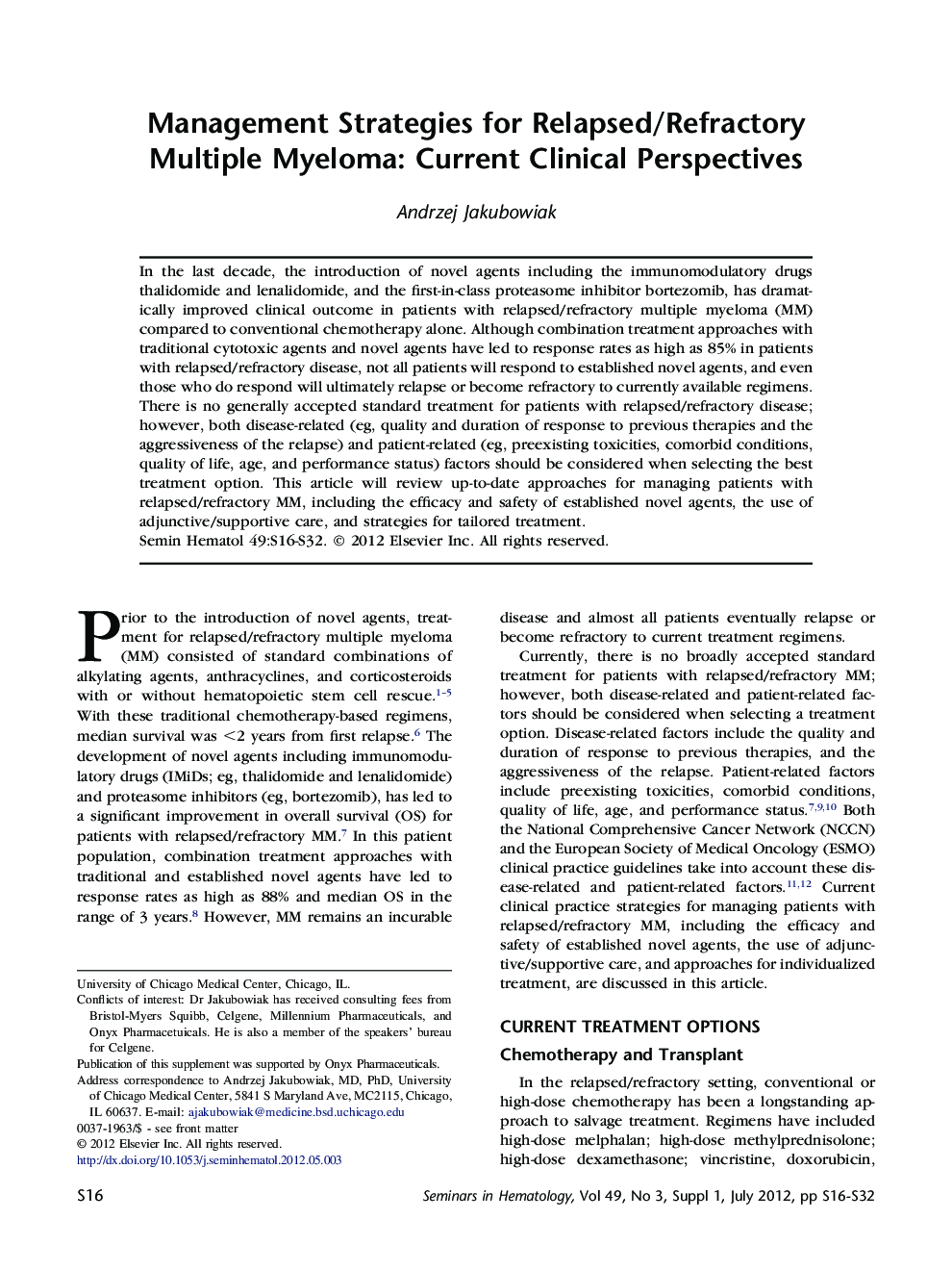| Article ID | Journal | Published Year | Pages | File Type |
|---|---|---|---|---|
| 3333852 | Seminars in Hematology | 2012 | 17 Pages |
In the last decade, the introduction of novel agents including the immunomodulatory drugs thalidomide and lenalidomide, and the first-in-class proteasome inhibitor bortezomib, has dramatically improved clinical outcome in patients with relapsed/refractory multiple myeloma (MM) compared to conventional chemotherapy alone. Although combination treatment approaches with traditional cytotoxic agents and novel agents have led to response rates as high as 85% in patients with relapsed/refractory disease, not all patients will respond to established novel agents, and even those who do respond will ultimately relapse or become refractory to currently available regimens. There is no generally accepted standard treatment for patients with relapsed/refractory disease; however, both disease-related (eg, quality and duration of response to previous therapies and the aggressiveness of the relapse) and patient-related (eg, preexisting toxicities, comorbid conditions, quality of life, age, and performance status) factors should be considered when selecting the best treatment option. This article will review up-to-date approaches for managing patients with relapsed/refractory MM, including the efficacy and safety of established novel agents, the use of adjunctive/supportive care, and strategies for tailored treatment.
